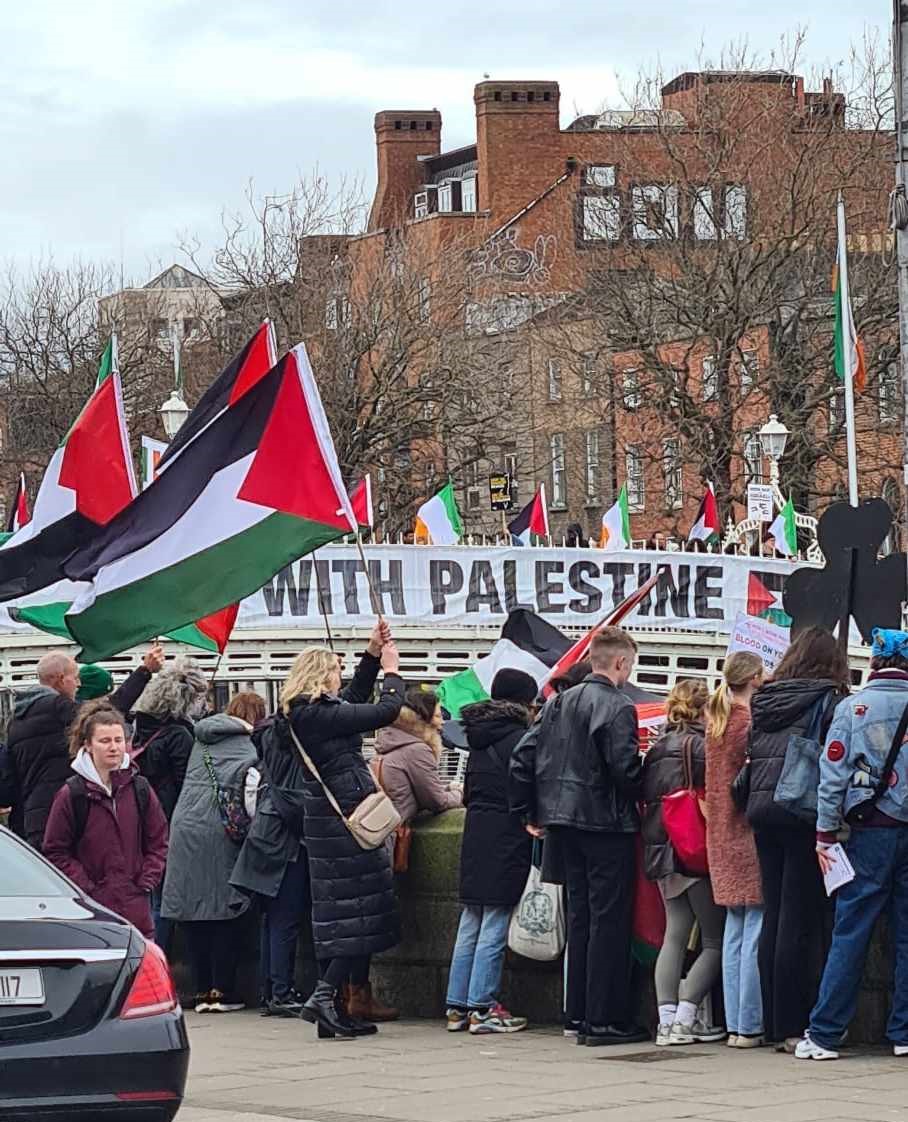Green
was everywhere. The elation was palpable. Half the people on the flight from Stansted were dressed as leprechauns
and the other half in Ireland rugby merch. But I wasn’t going for St Patrick’s
Day or the Six Nations showdown. In a once-in-a-lifetime coincidence and treat,
two friends of mine of decades-long standing had their plays in performance at
the historic Abbey Theatre.
One was Marina Carr’s brand new and brilliant Audrey or Sorrow, directed with pitch-perfect sensitivity and vision by Catriona McLaughlin; the other was Conor Hanratty’s direction of the oldest surviving play in the world, Aeschylus’ Persians. The two plays, written two and a half millennia apart, are linked by ghosts, bereavement, and delusion.
The
ghost in Persians is the great King Darius, raised in a thrilling
necromantic ritual to explain to his wife and councillors why they have
suffered such appalling fatalities in their doomed invasion of Greece. His deluded
son Xerxes believed he was entitled to invade and conquer Hellas. It was
impossible not to be reminded that, just five minutes away, a large and peaceful Free
Palestine demonstration was in full vocal form along the banks of the River
Liffey. As Marina said to me, ‘As a
once-colonised, starving nation, the Irish have to speak out’.
I got to know Marina’s exquisite work because, like so many great Irish writers, she has found inspiration in the ancient Greeks—Medea in By the Bog of Cats, the Oresteia in Ariel, and Hippolytus in Phaedra Backwards, just for starters. But Audrey is a modern Irish tragedy with a Beckettian absurdist edge and a noirish psychological detective plot about the ineradicable domestic presence of children who die. Yet it is often hilarious: Marina has a perfect ear for the casual cruelty that members of nuclear families inflict on one another and the lies they tell themselves. I was left speechless by the denouement, even though I half saw it coming.
Conor’s production is scintillating for several reasons. One is that the first ever production of Persians at the Abbey has been a long time coming. Edwardian Professor of Greek Gilbert Murray was well aware that the play, in the right context, was political dynamite, for in a letter to Yeats in 1905 he suggested a production in the Abbey Theatre, Dublin, ‘with a seditious innuendo’. In Yeats ‘The Statues’, Easter 1916 became a victory of civilisation over barbarism as the Irish rebels won a spiritual victory over the English. It was men, ‘not the banks of oars/that swam upon the many-headed foam at Salamis’ who ‘put down/All Asiatic vague immensities’,
It is therefore even more appropriate that Conor has realised his long-held conviction that this ancient text would be well served by performance in the ancient tongue of Ireland (I was so proud that my own 1996 translation was used for the surtitles, which I didn't realise until halfway through). And the acoustic effect is a revelation. As the mist swirls over Darius’ tomb and his spectre comes into view, it feels like a metaphor for the entire history of theatre, where we raise the ghosts of the past to speak to us once again in our ancestral languages.
The final quarter of Persians features Xerxes, in despair, singing a long antiphonal lament with his bereaved compatriots. He is the only character in all Greek tragedy who never speaks, but only sings. In a master stroke, Conor cast a young sean nós singer from the Gaeltacht region of South-West Donegal, Naoise Mac Cathmhaoil. The sweet, heartrending, melodic phrasing of this ancient dirge idiom was hypnotically beautiful. You know when a performance has spellbound its audience when there is a long silence before they break into applause. At the end of the Irish Persians, the silence was profound.
I first went to Ireland in the early 1990s. It was
so different. My car was searched by surly armed soldiers at the border
checkpoint driving from Belfast south. In the Republic, divorce was prohibited,
women had to travel secretly out of their own nation to obtain an abortion, and
I was assured last night by someone who has inside information that the
national broadcaster RTÉ refused to allow Father Ted to
air. But the sheer energy and merriment palpable in the streets of Dublin
this weekend seem down to far more than a victory in the rugby. In a world of
so much darkness, watching such an ancient culture grow into its liberal, lively, fun-loving, irreverent, woman-friendly maturity is an absolute joy.






No comments:
Post a Comment